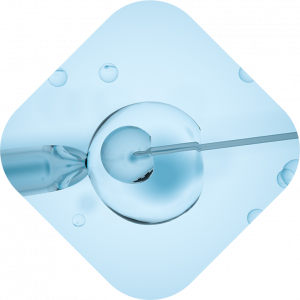 Advanced Age IVF Treatment
Advanced Age IVF Treatment
There are age limits for IVF treatment to ensure both the safety of the patient and the success of the procedure. Attempting IVF beyond the recommended age range may significantly lower the chances of pregnancy and increase health risks for both the mother and the baby. For this reason, clinics carefully assess each patient’s age and overall health before proceeding with treatment.
Advanced Age IVF Treatment
Unfortunately, egg quality worsens with increasing age. In turn, this reduces the chance of conception and having healthy children. Therefore, early pregnancy losses are more common than of those in the younger age group. Increased age of a woman and a low number of eggs are the most important factors affecting the success of fertility treatment. Although, for women aged 40 and over, we apply the Preimplantation Genetic Diagnosis (PGD) method. For women who have good ovarian capacity, pregnancy can work with a success rate of 25-30%.
Advanced Age and PGD
In order to increase the chances of having healthy children and ongoing pregnancy, mothers who undergo assisted reproductive techniques can apply “PGD”. Before the transfer of embryos to the mother’s womb, we check the chromosomes where we frequently observe problems during this age period, and thus we do not transfer bad embryos. Loss of the ovarian reserve can sometimes occur at younger ages.
